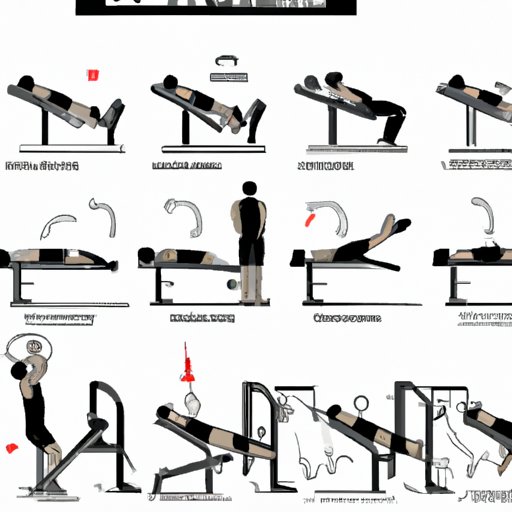
Increase Bench Press: Tips and Strategies
Are you struggling to increase your bench press? Whether you’re a beginner or a seasoned lifter, improving your bench press can be a challenge. Fortunately, with the right tips and strategies, you can build your strength and reach your personal best. In this article, we will explore the fundamentals of bench press, progressive overload, variations, breathing techniques, accessory exercises, nutrition, hydration, rest, and recovery. By implementing these strategies, you can increase your bench press and achieve your fitness goals.
Focus on the Fundamentals
Before we dive into advanced techniques, it’s essential to focus on the fundamentals of bench press. One of the most critical aspects of successful bench press is proper form and technique. In addition to reducing the risk of injury, proper form can improve your strength and increase the effectiveness of each rep.
Start by selecting a comfortable grip width that allows for optimal leverage and muscle engagement. Keep your core tight and engaged throughout the lift and push through your heels for added stability. Engage your shoulder and leg muscles to provide extra leverage and momentum during the lift. Remember to lower the barbell under control and touch it on your chest (not bounce!) before pushing the barbell back up to the starting position.
Utilize Progressive Overload
Progressive overload refers to a technique of gradually increasing resistance over time to build strength and muscle mass. Incorporating progressive overload into your bench press routine is an effective way to maximize your results. Start by selecting a weight that is 60-70% of your one-rep max and gradually increasing the weight by 2.5 to 5 pounds each week. Record your progress and aim to lift heavier weights than your previous session. Make sure to have a spotter to ensure safety concern.
Incorporate Variations
To avoid plateau, it is recommended to incorporate variations into your bench press routine. There are many variations of bench press that work different muscle groups and prevent the body from adapting to the same exercise routine. Experiment with variations such as close grip, incline, and decline bench press, that can help target the chest, triceps, and shoulder muscle groups. Remember to maintain proper form and technique even when adapting variations to prevent injury.
Use Proper Breathing Techniques
Proper breathing techniques are essential for effective bench press and can improve the quality of your reps. By taking deep breaths and exhaling during reps, you can prevent dizziness, improve stability, and build strength. Take a deep breath before lowering the barbell towards your chest, hold your breath and brace your abs to maintain the core engagement, and exhale forcefully as you push the barbell back up. Repeat deep breathing during rest intervals and between sets to manage fatigue and increase oxygen intake.
Incorporate Accessory Exercises
In addition to bench press, there are many accessory exercises that can build muscles needed for a stronger bench press. Try incorporating exercises such as tricep dips, dumbbell flys, and push-ups, which target various muscle groups that support the chest, triceps, and shoulders. By incorporating these exercises into your routine, you can improve your overall upper body strength and increase muscle size.
Fuel Your Body Properly
Nutrition and hydration play a crucial role in maximizing bench press performance. A balanced diet rich in protein, carbohydrates, and healthy fats can provide the energy and nutrients required to sustain and improve muscle strength. Stay hydrated by drinking enough water before, during, and after your workout. Avoid eating heavy meals before working out, as it can affect digestion and cause discomfort, leading to a compromised performance. Instead, try to eat light, healthy meals a few hours before your workout to keep energy levels up.
Rest and Recover
Rest and recovery are vital for improved bench press performance. Adequate rest between workout days allows muscles to recover and rebuild, ensuring optimal performance during the next session. Make sure to get enough hours of sleep, eat well, and incorporate rest days into your routine. The use of stretching, foam rolling, and massage can help reduce muscle soreness, stiffness, and improve mobility, aiding in better recovery and better performance during your workout.
Conclusion
Improving your bench press requires focus, discipline, and patience. By implementing these tips and strategies, you can break plateaus, increase your strength, and achieve your fitness goals. Remember to focus on the fundamentals, incorporate variations, use proper breathing, fuel your body, and rest and recover adequately. Be patient, consistent, and trust the process; over time, you’ll see marked improvement in your bench press.




